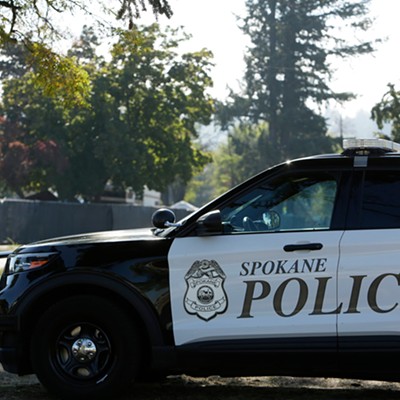In a small, sparsely attended committee hearing room in Olympia, Washington State Sen. Pam Roach, R-Auburn, was on the attack.
“The question is would you then deny these individuals who maybe don’t have the personal resources … or the capability … to pursue something as ominous as an appeal or presentation before the Growth Management Hearing Board?” Roach asked in January. “Would you deny that to them?”
Her target: Spokane County Commissioner Todd Mielke, who was testifying on behalf of the Washington Association of Counties in favor of a bill that would change access to appeals over land decisions. As Mielke started to answer, she interrupted him.
“You don’t think this throws up a barrier?”
As a county commissioner, Mielke shares the authority to make decisions about how land is used in his jurisdiction. He and the two other commissioners can shift properties from rural to urban, or allow high-rise apartments to spring out of prairie land. Those angered by the changes have one recourse: appealing before the Growth Management Hearings Board. If they’re lucky, the board overrules the commissioners.
Right now, anyone who participates — verbally or in writing— in previous county hearings can go appeal to the Growth Management Hearing Board. That’s what Mielke and other commissioners throughout the state are trying to change. Two separate bills this legislative session attempted to raise the appeals threshold, requiring people first to prove they could be personally affected before allowing them to challenge a ruling.
Land-use activists worry that such a notion would betray the intent of the state’s growth-management rules, giving county commissioners more unchecked power and the citizenry a lot less. Already, the debate has become one of the first campaign issues in the upcoming race for Mielke’s seat.
“Anyone, anywhere, can step in and appeal a land-use decision [currently],” Mielke says. “You can have someone in Cheney who appeals a land-use decision on Five Mile Prairie.” An organization out of Oregon and Florida, he says, appealed a land decision in Washington’s Skamania County.
Mielke says he just wants to make land-use appeals consistent with the rules in most civil cases: Normally, one party can’t sue another unless they’ve been personally affected. But there’s another factor of course: budgets.
While it costs nothing for citizens to challenge county land-use decisions, the county racks up legal costs to defend them. Since the board was formed in 1993, Spokane County has had to defend land-use appeals on 47 occasions.
The proposed change, however, incited a flurry of protest from activist groups like FutureWise and the Neighborhood Alliance. These groups sometimes challenge zoning changes on the basis of issues like sprawl, environmental impact or traffic, rather than just the impact on a single group of neighbors. The change, they worry, could cut them out of the process.
“Any citizen or entity can be affected by a precedent set by a decision of the Hearings Board, whether in the county or not,” writes Kathy Miotke, president of the Neighborhood Alliance. She was part of a group that, in 2005, appealed several urban growth area expansions throughout the county. The board found those expansions to be clearly erroneous.
Attorney Rick Eichstaedt of the nonprofit Center for Justice points to another case. Last year, county commissioners considered using an emergency amendment to add 429 acres to the urban growth area near Medical Lake in order to build a controversial new jail. In that case, hardly any property owners would have been directly impacted, Eichstaedt says.
Had Mielke’s suggested changes been in place, Eichstaedt says, nobody could have challenged it.
The bill Mielke testified in favor of ended up dying in committee. A second bill that contained similar changes had those restrictions stripped in a later amendment.
Yet, the debate has given Mielke’s November opponent, former County Commissioner John Roskelley, ammunition for one of the first salvos of his campaign. From 2006 to 2010, Roskelley served on the Eastern Washington Growth Management board, judging exactly the kind of appeals that Mielke wants eliminated.
Roskelley also takes issue with the fact that the bill Mielke supported would have also added a $400 filing fee for people challenging land-use rulings.
“It essentially guts the whole principle of the Growth Management Act,” Roskelley says.
Mielke has objected to Roskelley’s characterization, saying his testimony in Olympia only regarded the limits on appeal — not the proposed fee.
However, a recording of his testimony shows that Mielke defended the $400 filing fee, although he noted that those who could not afford it could apply for an exemption.
“That bill does impose a filing fee,” Mielke said in the beginning of his testimony. “We think that’s reasonable.”

























